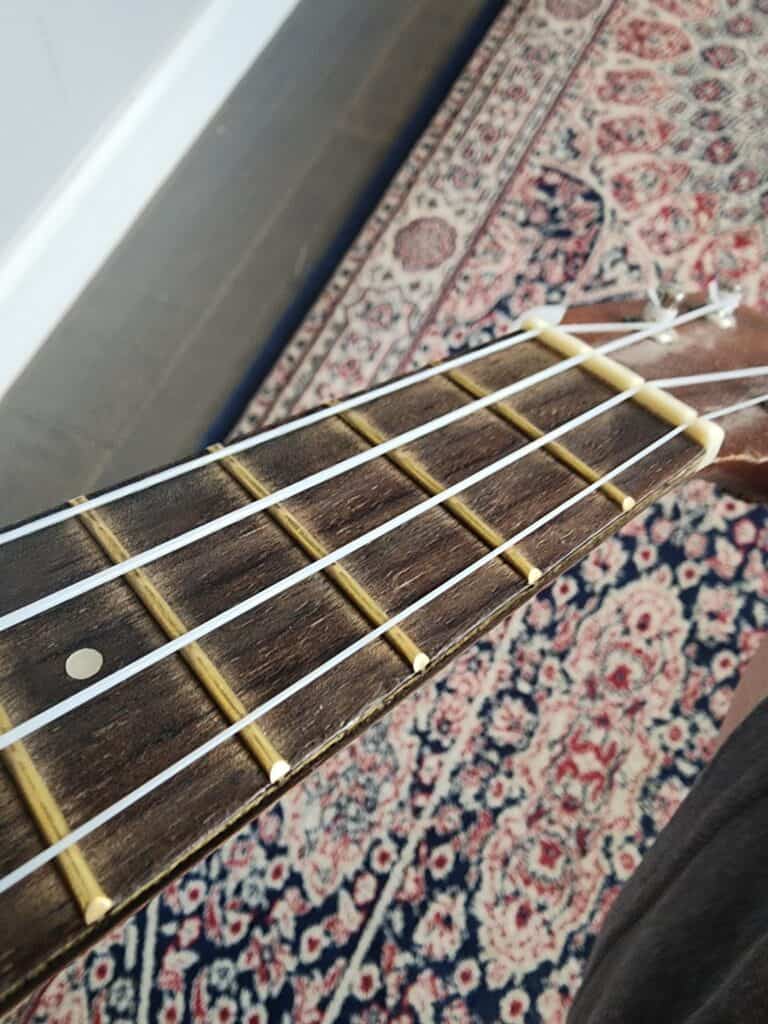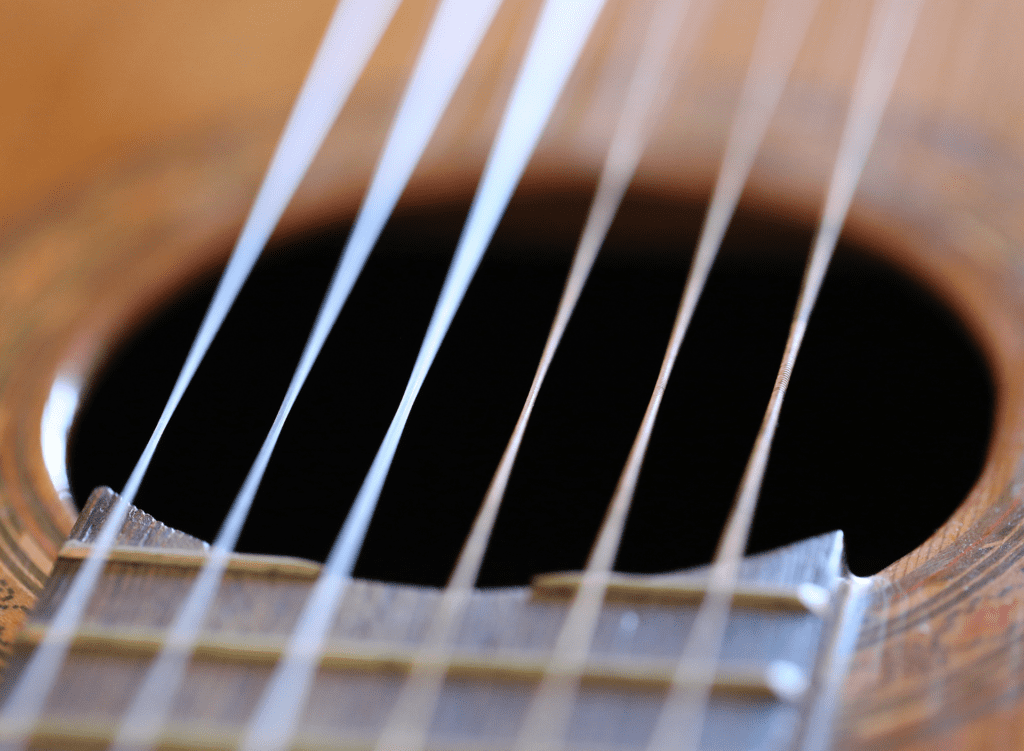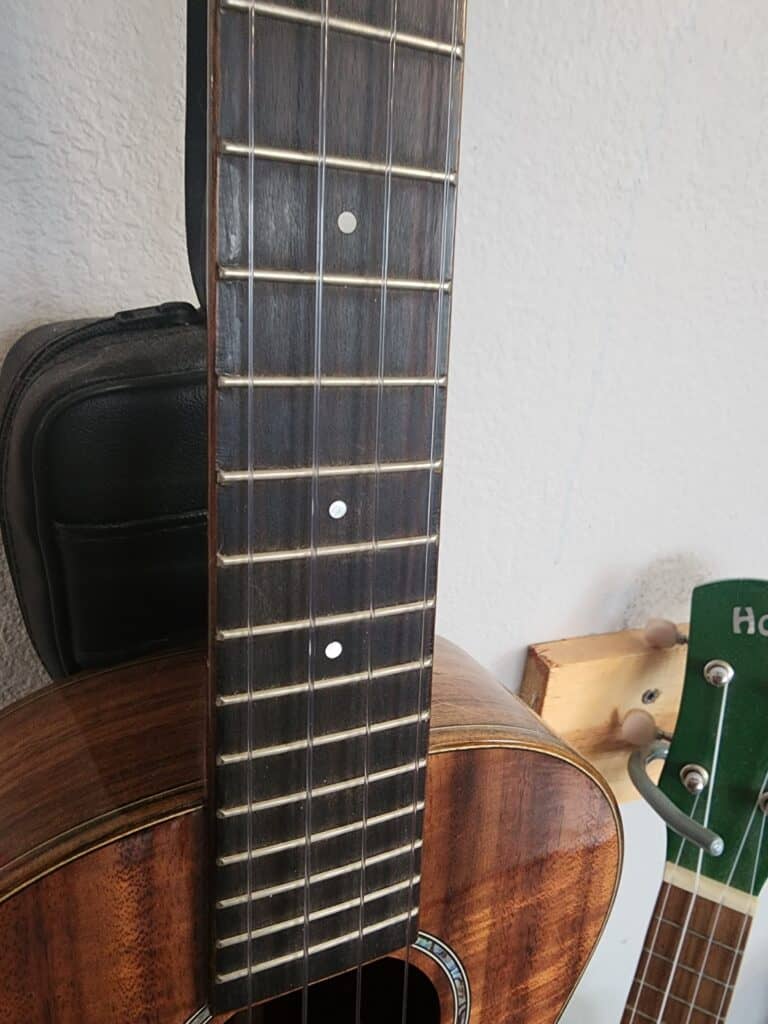Now after years of playing many stringed instruments, I usually don’t think twice about the tension I feel through my fingertips when I pick up a ukulele or any other instrument. But I had a friend text me and ask me to come over and check if the strings on her uke were tighter than they were supposed to be.

After explaining to her that the ukulele’s string should be held at a very specific tension, so in my experience, if your ukulele string feels too tight, its usually because the musician is conditioned to the feel of a specific string and that string has been replaced and their muscle memory hasn’t had enough time to adjust to the new sensation.
There are several reasons why ukulele strings might feel too tight, and understanding these causes can help you fix the problem and get back to playing your instrument comfortably.
As I said, the most most common reason why ukulele strings might feel too tight is that they are new. When you first install new strings, they will be very taut and may feel uncomfortable to play. This is because the strings have not yet had time to stretch and settle into their new position on the instrument. As you play your ukulele, the strings will gradually stretch and loosen up, becoming more comfortable to play. You can speed up this process by gently stretching the strings with your fingers or a tool designed for this purpose.
It Might Just Be Tuned Too High
Another reason why ukulele strings might feel too tight is that they are tuned too high. Each ukulele string is designed to be tuned to a specific pitch, and if you tune a string too high, it will feel very tight and may even snap. Make sure that you are using a reliable tuner to tune your ukulele, and that you are tuning each string to the correct pitch. If you’re not sure how to tune your ukulele correctly, there are plenty of online resources and instructional videos that can help.
The gauge of your ukulele strings can also affect how tight they feel. Gauge refers to the thickness of the string, and thicker strings will feel tighter than thinner ones. If you are new to playing the ukulele, you may want to start with lighter gauge strings until you build up the finger strength needed to play with thicker strings. On the other hand, experienced players may prefer thicker strings for their more robust sound and durability.
Humidity is another factor that can affect the tension of your ukulele strings. Changes in humidity can cause the wood of the instrument to expand or contract, which can in turn affect the tension of the strings. If the air is dry, your strings may feel tighter than usual. Conversely, if the air is very humid, your strings may feel looser than usual. To prevent this issue, it’s a good idea to store your ukulele in a place with a consistent humidity level, such as a guitar case with a built-in humidifier.
Manufacturing Defects Can Happen to Anyone

Finally, there is a possibility that there is a manufacturing defect in the string that causes it to feel overly tight. If you have tried all the other solutions and your ukulele strings still feel too tight, it may be worth replacing the strings with a new set from a different manufacturer.
As we’ve seen there are several reasons why ukulele strings might feel too tight, including new strings, high tuning, string gauge, humidity, and manufacturing defects. If you experience this issue, take a few moments to assess the situation and try some of the solutions outlined above. With a little patience and practice, you can get back to playing your ukulele with ease and comfort.
But don’t stop there, because there just might be another reason you’re feeling discomfort as a beginner uke player, as you get used to holding down the strings and forming chords. The good news is that with time and practice, your fingers will develop calluses and the pain will eventually subside. In this blog post, we will explore how long it takes for your fingers to stop hurting while learning ukulele.
My Fingers Just Hurt!
Firstly, it’s important to understand why your fingers hurt when you start learning to play the ukulele. As you press down on the strings, your fingers are essentially supporting the weight of the instrument. This can cause strain on the fingers, especially if you are holding down multiple strings at the same time to form a chord. Additionally, the friction between the strings and your fingers can cause discomfort and even blisters.
The amount of time it takes for your fingers to stop hurting will depend on several factors, including how often you practice, how long you practice for, and your individual pain tolerance. Some people may develop calluses within a few days or weeks, while others may take longer.
Generally speaking, it takes about 2-4 weeks for your fingers to develop calluses from regular ukulele playing. Calluses are patches of hardened skin that develop in response to repeated pressure or friction. They act as a protective layer between your fingers and the strings, making it more comfortable to play. You may notice that the skin on your fingertips becomes thicker and tougher as you practice more. This is a good sign that your fingers are adjusting to the demands of playing the ukulele.
It’s important to note that calluses won’t form overnight, and you shouldn’t push yourself too hard in the beginning. It’s natural to experience some discomfort or even pain when you first start playing, but you should take breaks when necessary to avoid causing injury or further pain.
Learn To Love Your Callus
To help speed up the callus formation process, there are a few things you can do. Firstly, practice regularly, even if it’s just for a few minutes a day. Consistent practice will help your fingers adjust to the demands of playing the ukulele. Secondly, make sure your ukulele is properly set up and tuned. A poorly set up ukulele can cause unnecessary strain on your fingers. Finally, consider using fingerpicks or a thumbpick to protect your fingers while you play. These accessories can help reduce friction and make it more comfortable to play for longer periods of time.

If you are experiencing a lot of pain or discomfort in your fingers while learning to play the ukulele, it’s important to take a break and rest your fingers. Overuse injuries can be serious and may require medical attention. If your pain persists or worsens, consider consulting a doctor or physical therapist for advice on how to avoid further injury.
In conclusion, learning to play the ukulele can be a bit painful at first, but with time and practice, your fingers will develop calluses and the pain will eventually subside. It takes about 2-4 weeks for calluses to form from regular ukulele playing, but this will vary depending on the individual. Remember to take breaks when necessary and listen to your body to avoid overuse injuries. With patience and persistence, you’ll be playing your favorite songs on the ukulele in no time!
